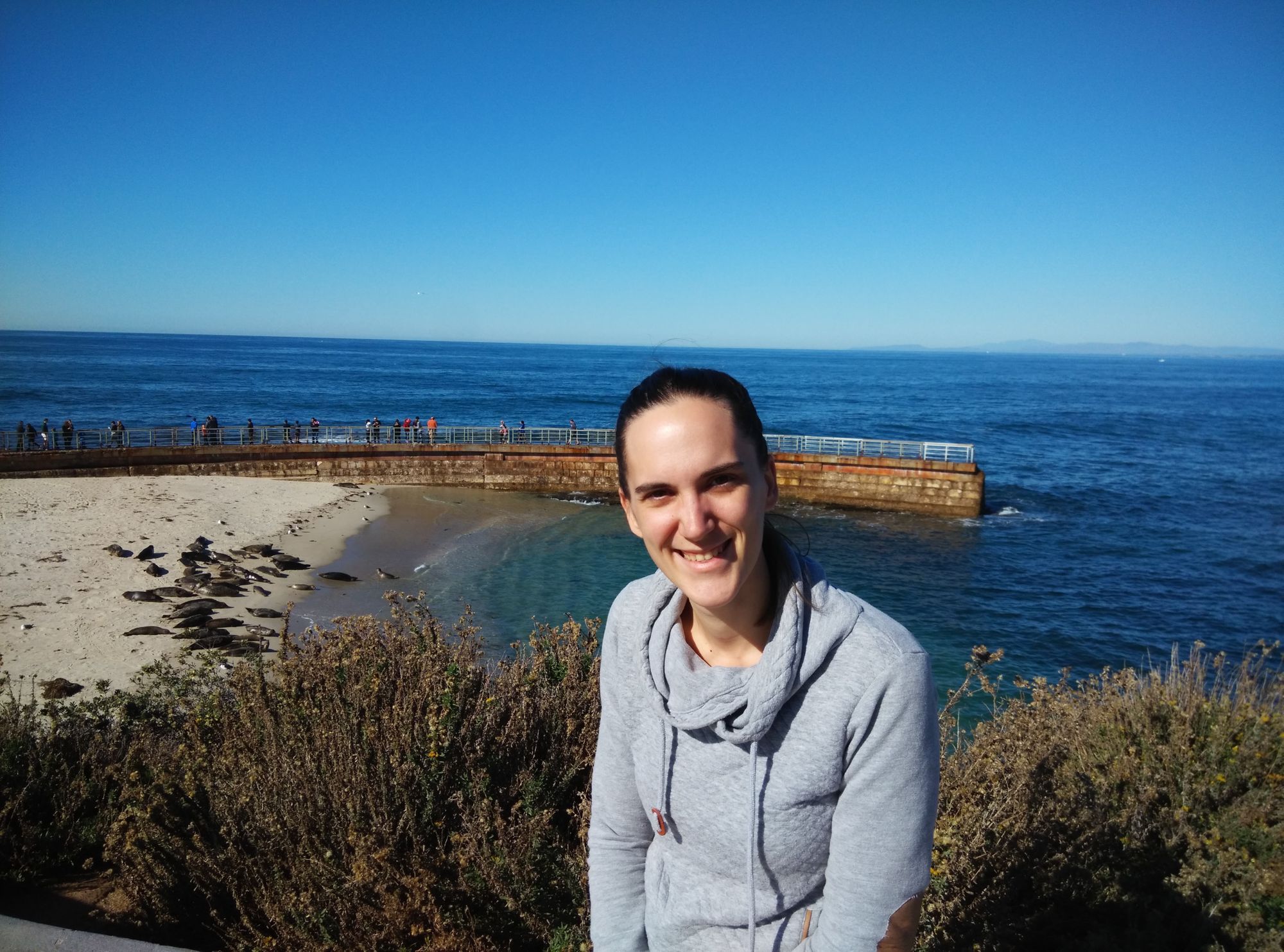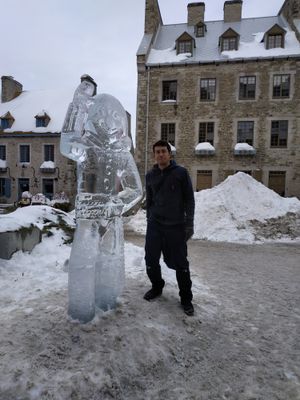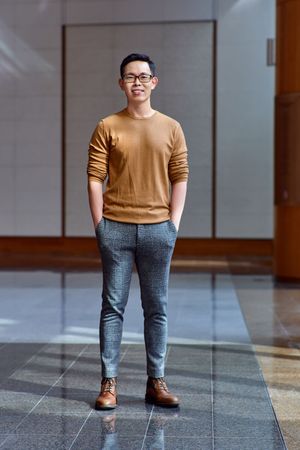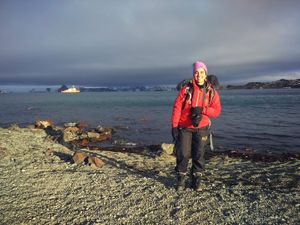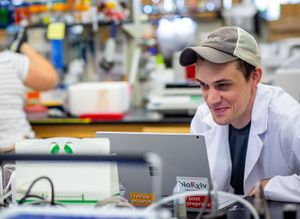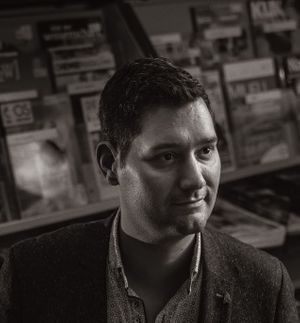We are very happy to introduce you to Nele Haelterman today! Nele is a wonderful human being and a scientist who is absolutely committed to improving research culture. As an eLife Community Ambassador, she co-led the “Reproducibility for everyone” initiative, developing and hosting workshops to teach researchers reproducibility-promoting tools (they have written a very interesting article too, take a look!). She is also one of our managing editors at ecrLife, and we love her because of her endless energy, strong determination, outstanding ideas and bright sense of humor and sweetness (all that you expect from an excellent leader!). She never hesitates to lend valuable input and guidance for other ecrLife editors, and has helped foster a truly nurturing and inclusive environment for both editors and writers. A very valuable thing about her is that no matter how thin she is spread, she will always find time for a friend or to help a colleague. When she is not working, you can find her doing outdoor activities, running or camping somewhere. As if all that wasn't enough, she will soon join The Scientist as a scientific editor! As you can see, she always shines bright, and we feel very happy (and lucky) to have her as part of our team, transforming and improving ecrLife day by day.
In a few sentences, could you introduce yourself, tell us where you are and what you study?
Nele Haelterman (NH) Hey there! I was born and raised in Leuven, a small city in Belgium. I studied biomedical sciences at the University of Leuven and joined a Drosophila neurogenetics lab for my master’s thesis. This is where I first got exposed to the vast array of genetic tools that exist for this model organism, that allow you to manipulate and determine gene function. I wanted to help develop novel technologies for genetic manipulation, and moved to Houston to join the lab of one of the field’s leaders and pursue a Phd in developmental biology. The lab was bridging the fields of fly and human genetics, applying the strengths of fly genetics to determine the disease-causing variant of a patient with a genetic disorder and to assess the mechanism by which the mutation causes disease. I was part of many incredible studies in this lab, and decided to continue to bridge human and model organism genetics for my postdoc. In wanting to expand my horizons genetically, I “moved to the dark side” and joined a mouse lab to study the mechanisms underlying brittle bone disease. Being able to see the strengths and weaknesses of both organisms has definitely made me a better scientist (though it may have turned me into a tougher reviewer, sorry!!).
What do you enjoy the most about being a scientist?
(NH) Hm, I have to admit that it depends on the moment! As a graduate student, I performed a genetic screen in fruit flies, searching for genes that are required for motor neuron development. I loved the idea of being the first person ever to observe the phenotypes caused by loss of a certain gene. I also really enjoy the challenge of solving the “scientific puzzle” in trying to figure out the mechanism by which my gene of interest causes such a dramatic phenotype. This part can sometimes get a bit frustrating though, when you are missing some essential puzzle pieces and are not sure how to obtain them! What I love most these days is the collaborations, whether they are related to my scientific projects or to the advocacy-related projects we are working on. I find that I get most of my energy and motivation out of getting to bounce ideas off of fellow scientists who share a drive to obtain a certain goal.
What is the greatest scientific challenge you have overcome so far?
(NH) My PhD lab’s main goal was to determine gene function by generating loss-of-function mutations in flies, and studying the associated consequences. Fruit flies have an incredible arsenal of genetic tools to modify a gene, allowing you to determine its function. I had been studying a gene called Ariadne for a few years when we obtained some puzzling results that suggested we were not studying the gene's endogenous function but were instead studying a new function it gained due to the mutation. I will spare you the details, because the genetic puzzle we had in front of us was quite confusing. It all turned out well in the end, and we actually made a really cool discovery. Regardless, it took us about 6 months of considering whether we should trash the project, and another 2 years to finalize our experiments and get the paper published. Those six months were by far the hardest of my scientific life. I was about to graduate and even though I had published quite well, I felt like a failure. My PhD mentor tried to cheer me up and told me: “Science is like a rollercoaster with amazing highs when you can get through the challenging lows”. In the moment, it was hard to really hear what he was telling me, but over time it did register, and I still remind myself of this sentence every now and then. The important lesson I learned from this experience is to make sure to keep things in perspective. I had gotten too attached to my project and lost track of my own self-care along the way. I now make sure that I work on several projects in the lab, that I make time for my family and for running.
What is the main change that you would like to see in the scientific community?
(NH) I would love to see a shift in the way we assess a scientist’s success. We are so focused on where, and how many papers someone has published that we lose track of the many other essential skills we need to maintain a thriving scientific environment. Too often, we undervalue scientists who teach the next generation of scientists, who engage in scicom to translate scientific findings to a general audience and to legislators, or who help advocate for changes in our academic environment. All of these activities are indispensable for the continued growth of the scientific enterprise, and for the public to maintain the public’s trust in science. But they take time away from the bench and seem to reduce one’s chances at establishing themselves as independent faculty. Initiatives like DORA and the Leiden Manifesto are making great strides towards changing the way we assess scientific excellence, and many institutions are starting to change their recruitment, promotions and tenure process. But we still have a long way to go...
What motivates you to communicate science?
(NH) Science can reveal such incredible aspects of nature, but as scientists we can sometimes get lost in the minutia of our projects and lose track of the bigger picture. Science communication helps me to regain focus on that bigger picture. Apart from that, I think that we as scientists are uniquely positioned to help translate and interpret scientific findings to a broader audience. We have seen such an alarming increase in skepticism towards science among the general public in the last few years. It is really up to us to increase our outreach efforts and help everyone around us understand the rigor of the scientific process, as well as the impact and the uncertainties related to scientific findings.
What is your favorite thing about ecrLife?
(NH) I love how the blog helps us to build a community of early career scientists with a shared passion for improving our scientific environment. I have met so many inspirational scientists through the blog, and have learned so much from each and every one of them. I feel like ecrLife brings us together, and makes us more well-rounded scientists and human beings. I also love the blog’s ability to raise awareness and make a difference. To give you an example, one of the faculty members at my institute had been following our blog’s updates, and was especially touched by our addition of the accessible science section. He reached out to me, asking whether we could develop a seminar series together, in which we would invite scientists with disabilities for a two-day visit, focusing on their scientific achievements on the first day, and on ways to improve the accessibility of science on the second day. We are reaching a broader and broader audience with the blog, and it is so incredibly rewarding to see that we can truly make a difference together.
About the author: Nele is a developmental biologist and geneticist at Baylor College of Medicine. She is an early career leader at the Genetics Society of America and promotes reproducible research practices through reproducibility for everyone. Connect with Nele on Twitter.
We welcome comments, questions and feedback. Please contact us at ecrlife [dot] editors [at] gmail [dot] com.
Would you like to share your own story, insight or opinion? Pitch us here.
Follow us on Twitter to stay up to speed with our latest blog post releases.

